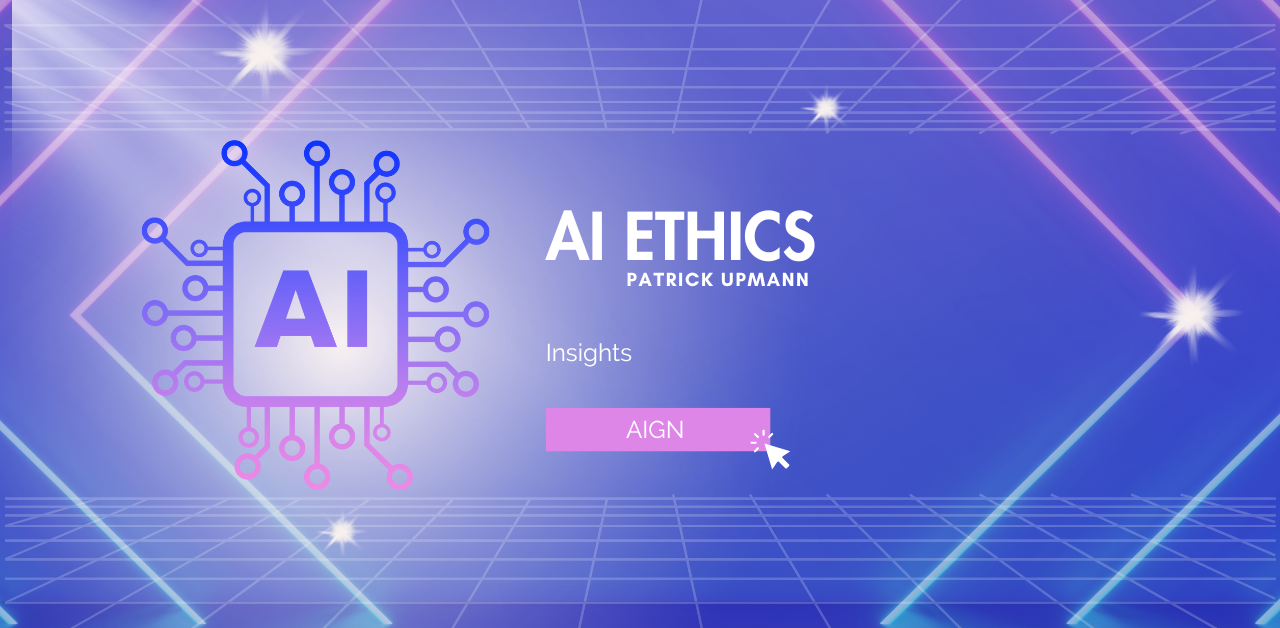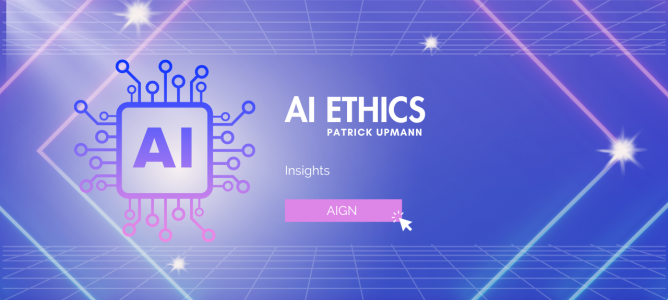Ethical Impact Certification aims to provide a structured process for evaluating and certifying AI products against predefined ethical principles. These principles often include fairness, transparency, inclusivity, and societal benefit. Here’s why this is critical:
Collaborate with global stakeholders, including governments, academia, and industry leaders, to establish clear and actionable ethical principles.
Certification must be based on objective, measurable criteria, such as fairness audits, bias detection, and compliance with ethical guidelines.
Ensure that certification processes are scalable and affordable, especially for SMEs. Use automation and AI-driven tools to reduce costs.
Governments, tech companies, NGOs, and academic institutions should work together to ensure certification frameworks are comprehensive and globally recognized.
Launch training programs and public awareness campaigns to help organizations understand the value and process of certification.
As AI continues to shape the future, Ethical Impact Certification is essential to ensure that technology serves humanity responsibly. By fostering trust, mitigating risks, and aligning with regulatory standards, certification frameworks empower organizations to innovate ethically while safeguarding societal values.
- What actually makes AI governance real?
von aign.global
AI governance is discussed everywhere. But very rarely is one question answered clearly: When does it actually exist? Across frameworks, principles, maturity models, and toolkits, one pattern keeps repeating:AI governance is described extensively — but it is not activated when it matters most. Through extensive analysis of regulatory practice, board-level escalation cases, and real-world AI incidents, one conclusion …
- From Global Risk to Governable Systems
von aign.global
Why the WEF Global Risks Report 2026 requires an AI Governance Operating System 1. What the WEF Report Diagnoses The WEF Global Risks Report 2026 makes one structural shift unmistakably clear: AI is no longer a sectoral or technological risk.It has become a systemic force shaping economies, societies, and decision-making itself. The report highlights three converging dynamics: The …
- AI Governance in a BANI World
von aign.global
With board members. Legal leaders. Technology team A personal observation from real conversations. BANI describes a world that is brittle, anxious, non-linear, and increasingly incomprehensible — where systems fail suddenly and responsibility becomes harder to assign. AI governance doesn’t fail because frameworks are missing.It fails when responsibility disappears. Over the past months, I’ve had many …
- Why AI Governance Became a Responsibility Problem – Why AIGN Circle Exists
von aign.global
AI governance has crossed a structural threshold. What was once an ethics discussion has become an operational, legal, and board-level responsibility. Global data shows a consistent pattern: regulation is accelerating, liability is personalizing, costs are rising, and governance increasingly fails not because of missing frameworks—but because no one can credibly carry responsibility when decisions escalate. This article …
- NIS2 – Beratung & Umsetzung
von aign.global
Was Unternehmen jetzt tun müssen – und warum Beratung & Governance entscheidend werden Die NIS2-Richtlinie ist in nationales Recht übertragen und entfaltet spätestens 2026 ihre volle Wirkung. Sie betrifft nicht nur klassische KRITIS-Unternehmen, sondern über 30 neue Branchen, darunter Fertigung, Abfallwirtschaft, Postdienste, Lebensmittel, Energie, Transport, Verwaltung, Finanzwesen und Digitaldienstleister. Damit wird NIS2 zur breitesten europäischen Sicherheits- und Governance-Regulierung seit …
- The Agentic Governance Collapse
von aign.global
Why Autonomous AI Systems Are Outrunning Global Oversight — And What Leaders Must Build Now Autonomous AI agents are no longer prototypes or research experiments. Over the past twelve months, they have quietly moved into mission-critical workflows across finance, healthcare, public services, logistics, manufacturing, and energy infrastructure. These agents now make decisions, trigger actions, access …
- The AI Navigation Gap
von aign.global
Why AI Fails in Modern Enterprises — and the New Governance Function Every CEO Will Need in 2026 By Patrick Upmann — Architect of Systemic AI Governance. Something strange is happening inside modern enterprises. Despite record investments in AI, cloud, cybersecurity and digital transformation, organizations are becoming less able to make decisions, not more. AI pilots stall. …
- NIS2 Beratung und Umsetzung
von aign.global
NIS2: Deutschland unterschätzt den Governance-Schock – und warum jetzt Struktur statt Tools zählt Deutschland ist spät dran.Deutschland ist spät dran.Mit dem NIS2-Umsetzungsgesetz tritt die europaweit schärfste Cyberregulierung nahezu ohne Übergangsfrist in Kraft. Unternehmen müssen ihre Sicherheits- und Governance-Strukturen sofort neu ausrichten. Aus Sicht von Patrick Upmann, Berater und Entwickler systemischer Governance-Architekturen, ergibt sich daraus eine klare …
- India’s AI Governance Guidelines 2025
von aign.global
Mark a Global Turning Point — Now Comes the Architecture From Safe and Trusted AI to systemic architecture. India’s Governance Guidelines set the vision. AIGN OS could serve as the operational layer — the architecture that turns policy into practice. Patrick Upmann is the architect of AIGN OS – The Operating System for Responsible AI …
- AIGN AI Governance Academy
von aign.global
The Global Education Infrastructure for Responsible AI A New Kind of Academy for a New Kind of Intelligence. Artificial Intelligence is transforming the operating logic of our world — faster than regulation, education, or culture can adapt.It governs economies, public decisions, and digital life itself. Yet while algorithms evolve exponentially, institutions still learn linearly. The …
- From AI Governance Playbook to Operating System
von aign.global
How AIGN OS Operationalizes the World ECONOMIC FORUM Responsible AI Playbook 2025 The new World Economic Forum Responsible AI Innovation Playbook (2025) outlines what organizations must do – nine “Plays” across strategy, governance, and development. The bottleneck is how: less than 1% of organizations have fully operationalized Responsible AI. –> AI Innovation: A Playbook by World Economic Forum AIGN OS provides that missing …
- Patrick Upmann – Keynote Speaker on AI Governance
von aign.global
Speaker at TRT World Forum 2025 · Architect of the world’s first AI Governance Operating System · Trusted voice for corporate leaders At the TRT World Forum 2025 in Istanbul, global leaders, policymakers, and innovators gather to shape the debates that define our future. Among them: Patrick Upmann, internationally recognized as the architect of the world’s first AI …
- From Seoul to Asia: A New Chapter in AI Governance for Education
von aign.global
The First AI Education Trust Label in APAC In September 2025, history was written in Seoul, South Korea: Fayston Preparatory School became the first institution in Asia to receive the AIGN Education Trust Label. For me, as Founder of AIGN – Artificial Intelligence Governance Network and architect of the AIGN OS – The Operating System for Responsible AI Governance, this …
- ASGR August 2025: Global AI Governance Readiness Score rises to 42.6
von aign.global
AI Governance is rising. But still not ready. But still not ready.The world is beginning to build governance structures for Artificial Intelligence – but the system is far from stable. The latest ASGR – AIGN Systemic Governance Readiness Index stands at 42.6 out of 100 in August 2025. This marks clear progress compared to July (38.8), yet significant …
- ASGR – The AIGN Systemic Governance Readiness Index
von aign.global
The Global Score for Responsible AI Governance Everyone’s talking about AI governance. But who’s actually building it? While regulations accelerate and risks proliferate, there’s still no global metric to assess how prepared the world truly is for the systemic governance of artificial intelligence. That’s why we built ASGR.The AIGN Systemic Governance Readiness Index is the world’s infrastructure-based …
- AI Governance is Infrastructure. And Most Got It Wrong.
von aign.global
Why the future of AI regulation depends on architecture — not awareness. This is not another overview. It’s a reality check. In 2025, AI governance has become an industry — but not a solution. Every new regulation triggers a surge of templates. Every conference has “AI Ethics & Governance” panels. Every consulting firm launches a …
- Data Act – The Future of the Data Economy Begins Now
von aign.global
How the AIGN Data Act AI Governance Framework Transforms Compliance into Competitive Advantage 2025 – A Defining Year for Data & AI Governance 2025 marks a historic turning point for Europe’s digital economy—one with global consequences. On September 12, the EU Data Act comes into force, accompanied by the Data Governance Act (DGA), the EU AI Act, and the GDPR. …
- 🟢💡 What is an AI Governance Framework? The Ultimate Guide (2025 Edition)
von aign.global
What is an AI Governance Framework? – Definition and Meaning AI is No Longer Science Fiction: The 2025 Reality. In 2025, artificial intelligence is not just a technological buzzword—it is the backbone of global transformation. Today, over 80% of enterprises have integrated some form of AI into their operations, according to the latest McKinsey Global Survey. The …
- AIGN AI Governance Framework: Ready for the EU AI Act Code of Practice
von aign.global
Why the AIGN AI Governance Framework Sets the Standard for Trustworthy AI Governance in 2025 Artificial Intelligence (AI) is transforming every sector – but real progress depends on trust, compliance, and transparent governance. With the European Union’s AI Act and the new Code of Practice for General-Purpose AI Models, companies, governments, and innovators face new obligations for safety, security, …
- Trust Needs Structure, Not Suspension
von aign.global
Why the AIGN AI Governance Framework Is Europe’s Most Practical Answer to AI Governance Uncertainty By Patrick UpmannFounder, AIGN – Artificial Intelligence Governance Network An Open Letter. A Valid Alarm. A Structured Answer. In their recent open letter to President von der Leyen and the European Commission, European industry leaders voiced a growing concern: “The …
- Beyond Confidential AI – Why the Future of Trust Still Needs AI Governance
von aign.global
Confidential AI Is Here – But Trust Still Needs a System By Patrick Upmann | Founder, AIGN – Artificial Intelligence Governance Network. Building a Verifiable Trust Architecture for AI. Meta builds. Nvidia powers. AMD encrypts. But who sets the rules?We are entering a new era of Confidential AI—one where data stays encrypted even during computation, …
- Why LLMs Without Governance Will Fail – And How the AIGN Framework Builds Trust at Scale
von aign.global
The use of LLMs is not inherently risky. What’s risky is using them without governance. The use of Large Language Models (LLMs) is not inherently risky. What’s risky is deploying them without clear governance, structure, and oversight. According to McKinsey’s 2024 Global AI Survey, over 65% of companies across sectors now actively use generative AI …
- A Global Turning Point: Doha Sets New Standards for AI Governance
von aign.global
AI Governance – Why the Qatar Conference Marks a Turning Point—And Why Bold Standards and International Responsibility for AI Are Needed Now With the international conference “Artificial Intelligence and Human Rights: Opportunities, Risks, and Visions for a Better Future,” Doha has opened a new chapter in the global governance of AI. Organized by Qatar’s National …
- The Data Act & AI Governance: Europe’s Double Strategy for a Responsible Data Era.
von aign.global
How companies benefit from Europe’s new data act order and AI strategy 1. Introduction: The Data Act—More Than Just Another Law With the entry into force of the EU Data Act in September 2025, Europe is embarking on its most ambitious data economy transformation to date. This regulation, officially known as Regulation (EU) 2023/2584, will …


